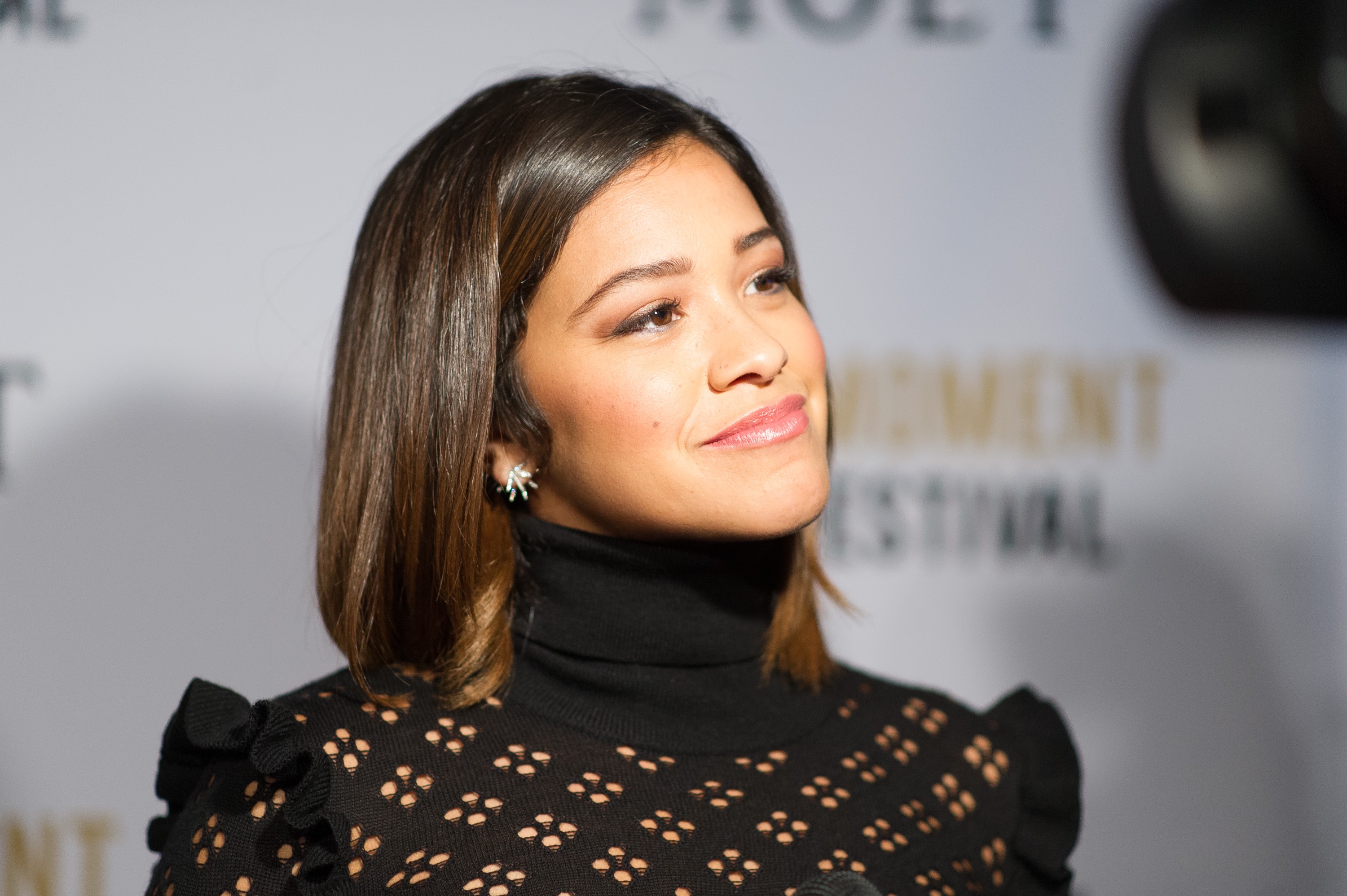Gina Rodriguez is catching heat once again. The Jane the Virgin star posted a video on her Instagram Story singing “Ready or Not” by the Fugees — including a line where she raps the N-word. Almost immediately, the Puerto Rican actress was trending on Twitter, with users criticizing Rodriguez for being anti-Black.
“Gina Rodriguez has proven time and time again to be anti-Black. Now she’s out here saying the N-word and posting it on Instagram. Nobody let her crocodile-tear her way outta this one. She’s over,” user Diane Alston tweeted.
Alston is alluding to a round-table discussion Rodriguez participated in with actresses Emma Roberts, Ellen Pompeo and Gabrielle Union last year. During the conversation, Rodriguez made controversial comments about equal pay.
“White women get paid more than Black women, and Black women get paid more than Asian women, Asian women get paid more than Latina women, and it’s like a very scary space to step into,” Rodriguez, 35, said.
Her remark stunned listeners, who not only corrected the actress on the plight of Black women in Hollywood but also noted that her remarks were racially insensitive. In January, Rodriguez addressed the criticism during an appearance on SIRIUS XM’s Sway in the Morning. While first arguing that her quote was taken out of context, the Latina then offered an apology that for many wasn’t satisfying. She claimed to be an advocate for the Black community and stated that her father identified as Afro-Latino.
“If anything, the Black community is my community. When I speak about Latino advocacy, people think I’m only talking about people who are my skin color, but little do they know that I’m very aware of what my culture is,” she said, tearing during the conversation.
A photo of her Puerto Rican father, who didn’t appear to be dark-skinned, later circulated on social media. Her questionable apology and relationship to Blackness only further incited the backlash.
Similarly, Rodriguez has once again offered an unconvincing apology. After realizing that her use of the N-word made her go viral for all the wrong reasons, she deleted the video on Instagram and posted another one where she expressed regret.
“I am sorry if I offended anyone by singing along to the Fugees, to a song I love that I grew up on. I love Lauryn Hill,” she said. “I really am sorry if I offended you.”
For many, the apology seemed insincere and condescending.
“Anyone who apologizes with ‘I’m sorry if I’ve offended anyone’ can have several seats. That is not taking ownership of a damn thing, admitting fault or caring,” Twitter user That Dame Lana tweeted.
Across the platform, Black women have also been discussing the use of the N-word among non-Black Latinos, like Rodriguez.
“There’s always been an issue with Latino/Latinas thinking they get a pass to say [the N-word] because they’re not white and it needs to be addressed,” one user said.
“Yes I know Latinos can be Black. I’m aware that Afro-Latinos exists,” added user Chantel Bell-Covington. “But if you have no Black in you whatsoever you shouldn’t be saying [the N-word].”
Another user who goes as Sensitive Spice recognized that for many youth of color growing up in impoverished neighborhoods throughout the U.S. it’s common to use the term casually. However, she said that as non-Black Latinos, like Rodriguez, grow up and become aware of the racial inequalities and discriminations that persist, there is a process of unlearning that requires them to abandon using anti-Black language.
“Y’all non-Black Latinos really need to learn how to stop saying [the N-word]. I don’t care how you grew up, where you grew up or who you grew up with. I grew up thinking a lot of things were OK but now that I’m older I have enough sense not to say or do them. That excuse is tired,” she tweeted.
Just as this isn’t the first time Rodriguez has been accused of anti-Black racism, it’s also not the only time Latino celebrities have been criticized for using the N-word. Back in 2001, Jennifer Lopez faced backlash for singing the word in her hit “I’m Real (Remix).” But the problem extends beyond Hollywood and the music industry. For too long everyday non-Black individuals in the Latino community have used a term rooted in anti-Blackness as if it was theirs to reclaim. It’s not. As Black folk denounce and analyze Rodriguez’s N-word drop, it’s pivotal that non-Black Latinos carefully and respectfully pay attention.




